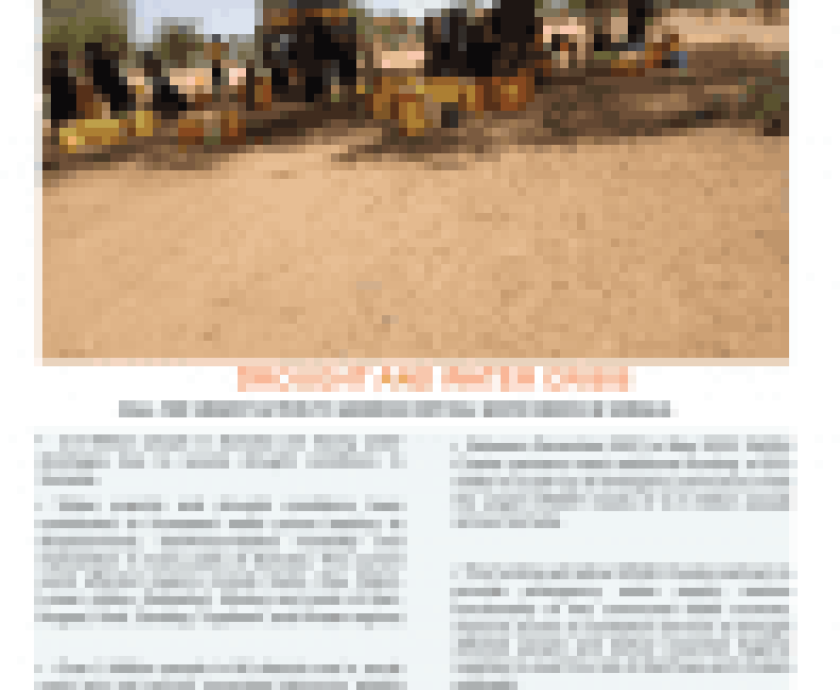Click to expand Image
Photos of Nguyen Thi Tam (right) and Trinh Ba Phuong (left), wearing a shirt that says “Human Rights” and carrying a sign that reads, “[You] cannot rob human rights from us, the people!”
© Private
(New York) – The Vietnamese authorities should immediately drop politically motivated charges and release two land rights activists in Hanoi, Human Rights Watch said today.
Police arrested Nguyen Thi Tam and Trinh Ba Phuong in June 2020 for having “prepared, published and disseminated video clips and writing with distorted contents that sow confusion among the people in order to oppose the State,” in violation of Article 117 of the Penal Code. A court in Hanoi is scheduled to hear their cases on December 15, 2021. If convicted, each faces up to 20 years in prison.
“The Vietnamese government is using criminal law to intimidate and shut down people peacefully protesting against land confiscation,” said Phil Robertson, deputy Asia director at Human Rights Watch. “The government should release these two activists and all others arrested and imprisoned under Article 117, and abolish this abusive law.”
Article 117 of the Penal Code broadly prohibits “making, storing, disseminating or propagandizing information, materials and products that aim to oppose the State of the Socialist Republic of Vietnam.”
In 2021 alone, at least 16 people – including the prominent independent bloggers Pham Chi Dung, Nguyen Tuong Thuy, and Pham Chi Thanh – have been convicted and sentenced to prison for violating Article 117. Another 11 people, including the rights activist Nguyen Thuy Hanh, have been arrested and are being held in pre-trial detention under that article.
Nguyen Thi Tam, 49, has protested against land confiscation in Hanoi’s Duong Noi commune since the mid 2000s. In June 2008 she participated in a public protest outside the People’s Committee of the then-Ha Tay provincial headquarters. In November 2008 a court put Nguyen Thi Tam and other villagers on trial for “resisting people on public duty,” convicted her, and sentenced her to a suspended 12-month prison sentence.
Trinh Ba Phuong, 36, comes from a family of land rights activists. Over the past decade, he has joined his mother, Can Thi Theu, his father, Trinh Ba Khiem, and younger brother, Trinh Ba Tu, in numerous protests and campaigns in support of human rights, land rights, and environmental protection. The authorities arrested his father in April 2014 during a government land confiscation in Duong Noi for “resisting against those who are on public duties,” under Article 257 of the Penal Code, and imprisoned him for 14 months. His mother previously served two prison terms – 15 months beginning in 2014 and 20 months in 2016.
On the same day that Trinh Ba Phuong was arrested in Hanoi, the police in Hoa Binh province also arrested his mother and brother on the same charge. Prior to their arrests, the three family members were instrumental in amplifying the voices of farmers at Hanoi’s Dong Tam commune, where a police raid in January 2020 resulted in the deaths of an 84-year-old farmer, Le Dinh Kinh, and three policemen. Trinh Ba Phuong was one of the authors of the “Dong Tam Report,” which shed light on the violent land clash. In October 2020 the police arrested another author of the Dong Tam Report, the prominent dissident Pham Doan Trang. A court in Hanoi is scheduled to hear her case on November 4.
In May, Trinh Ba Phuong’s mother and brother, Can Thi Theu and Trinh Ba Tu, were each sentenced to eight years in prison. Upon being asked their names at the trial, both said “my name is Victim of the Communist [regime].” Both have appealed their verdicts. Recently, a family member told Radio Free Asia that police allegedly beat Trinh Ba Tu during his arrest in June 2020, sending him to the hospital for treatment of his injuries.
Both Trinh Ba Phuong and Trinh Ba Tu appear to have anticipated their arrests. On the day they were arrested, pre-recorded videos were posted on Facebook in which they expressed concern that they might be tortured and killed by police. They asked supporters and family members to publicly display their bodies if they were killed to expose the crimes against them.
In February 2020 the police newspaper labeled Nguyen Thi Tam, Trinh Ba Phuong, Trinh Ba Tu, and Can Thi Theu “opposing reactionary” persons who “collected and disseminated” news about the deadly Dong Tam commune clash.
“Land confiscation has become one of Vietnam’s most heated rights issues, and the government’s repressive response has made the situation worse,” Robertson said. “The government should recognize people’s rights to protest and seek a fair and transparent process to negotiate adequate compensation for losing land.”



